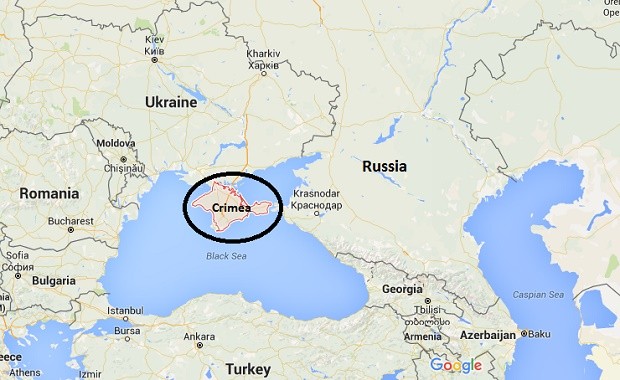UNITED NATIONS — A key U.N. committee approved a resolution Tuesday condemning Russia’s “temporary occupation” of Crimea and reaffirming the United Nations’ commitment to Ukraine’s sovereignty over the Black Sea peninsula.
Russia urged the General Assembly’s human rights committee to vote against the resolution, but it was approved by a vote of 73-23 with 76 abstentions. The resolution is virtually certain to be adopted by a similar vote when it comes before the 193-member assembly next month.
READ: Trump suggests US will accept Russia’s annexation of Crimea
The draft resolution condemns abuses and discrimination “against the residents of the temporarily occupied Crimea, including the Crimean Tatars.” The Crimean Tatars are a Turkic ethnic group that formed in the Crimean Peninsula in the 13th-17th centuries.
Russia annexed Crimea in March 2014 following the ouster of Ukraine’s former Moscow-friendly president after months of protests — a move that led to crippling Western sanctions. A pro-Russia insurgency erupted in eastern Ukraine the following month.
A February 2015 agreement has helped reduce fighting between pro-Russian separatists and Ukrainian forces, but frequent clashes have erupted and efforts to reach a political settlement have stalled.
The draft resolution urges Russia to immediately end all abuses against Crimea residents including “arbitrary detentions, torture and other cruel, inhumane or degrading treatment, and to revoke all discriminatory legislation.”
“After Russia occupied Crimea, the human rights situation has deteriorated sharply with extra judicial killings, intimidation, arbitrary detentions, torture and abuses to the freedom of expression,” Kyslytsya said.
It calls on Russia to release Ukrainians who were illegally detained, and to allow cultural and religious institutions to reopen. And it urges Russia to immediately revoke the Supreme Court’s Sept. 29 decision declaring the Mejlis of the Crimean Tatar People, the self-governing body of the Crimean Tatars, an extremist organization and banning it.
Ukraine’s Deputy Foreign Minister Sergiy Kyslytsya told the committee before the vote that the resolution’s main goal “is to ensure that Russia fully complies with its obligations as an occupying power.”
“After Russia occupied Crimea, the human rights situation has deteriorated sharply with extra judicial killings, intimidation, arbitrary detentions, torture and abuses to the freedom of expression,” Kyslytsya said.
Anatoly Viktorov, who heads the Russian Foreign Ministry department dealing with human rights, called the resolution “politically motivated,” saying the people of Crimea “chose to vote in a historic referendum to reunite with Russia.”
“The draft is one-sided,” he said. “It completely ignores the negative impact that the actions of Ukrainian authorities have had on the residents of Crimea.”
“The draft is one-sided,” he said. “It completely ignores the negative impact that the actions of Ukrainian authorities have had on the residents of Crimea.”
Viktorov said “Crimean residents have all the means of judicial protection that are accorded to Russian citizens” and the same human rights.
But rights groups have raised concerns over freedom of speech and association in Crimea. Local authorities have banned at least two Crimean Tatar leaders from entering the peninsula, shut down Crimean Tatar media outlets, and prohibited peaceful gatherings.
U.S. deputy ambassador Sarah Mendelson said “Russia wants to make sure only one voice is heard in Crimea — Russia’s.”
“States should not have to fear that a neighbor, however powerful, will seize their territory,” she said. CBB
